As of May 25, Canadians who are fully vaccinated with a Health Canada-approved vaccine have been no longer required to self-isolate for 14 days upon arrival in the Yukon. Prior to this, almost anyone entering the territory was required to self-isolate for two weeks during the pandemic.
I am fortunate to have received my second dose in mid-June and I have been dreaming of a visit to the Yukon for many years. Since moving to British Columbia last year, getting to the Yukon is also much more accessible.
With a total population of less than 40,000 people in an area spanning 482,000 square kilometres, I imagine that keeping distant from others wouldn’t be too difficult in the Yukon. In fact, there are many opportunities for thrill-seekers and those in search of a refreshing change of landscape alike.
At the time of writing, 84% of adult Yukoners have received at least one dose and 76% have received two doses. While this outpaces the vaccination effort in other provinces by a generous margin, some communities still aren’t ready to welcome travellers.
I encourage you to look up the communities to which you plan on travelling prior to your trip and to respect their wishes. There is a very handy, frequently updated tool on the Council of Yukon First Nations website to make the process very easy for you.
How to Get There
Depending on your mode of transportation, getting to or from the Yukon may well be part of the fun.
By Road
Coming from British Columbia, Alberta, or Alaska, it is possible to drive to the Yukon. Indeed, it’s a long way from anywhere, but I’m sure it would make for a very memorable drive.
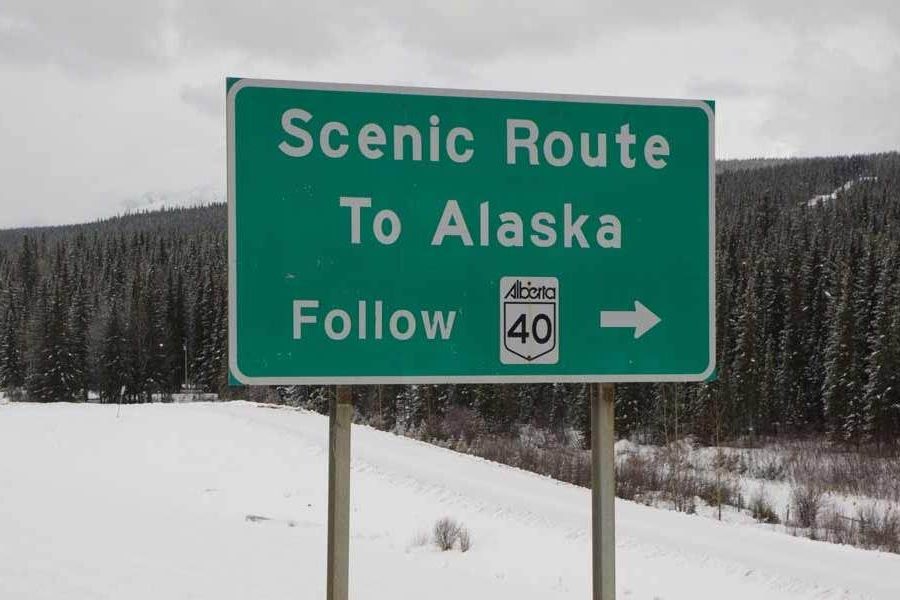
In the summer of 2012, I spent some time fighting wildfires near Fort Nelson, British Columbia. One of the fires we had was near the Liard Hot Springs. It was a majestic helicopter ride through the Northern Rockies near Fort Nelson.
After stopping to reload with jet fuel, ice cream, and pepperoni, we landed on the side of the Alaska Highway and were greeted by buffalo roaming nearby.
These majestic beasts seemed interested in our flying machine, but, much to our pilot’s delight, decided to veer clear as they meandered past. The fire turned out to be a dud, but I’ll never forget our pilot buzzing treelines and mountaintops on our way back to base later that day.
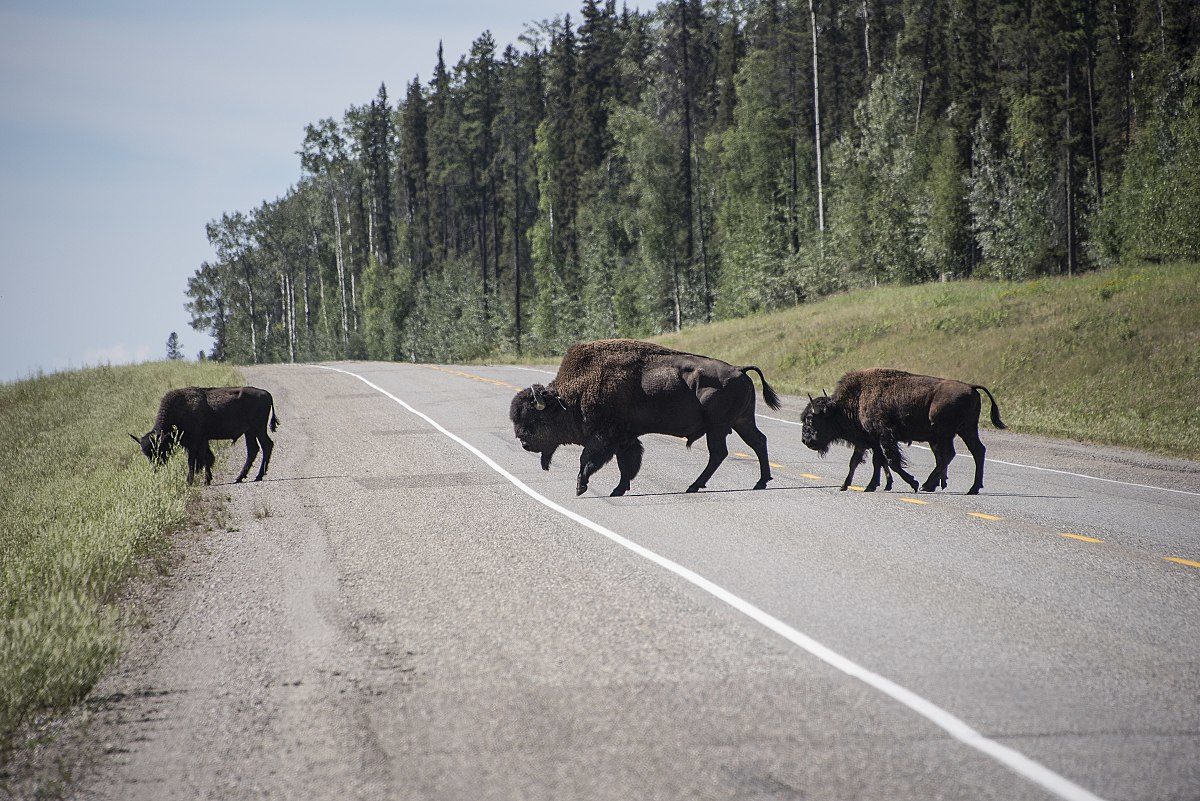
You may be able to snag a vehicle relocation one-way either northbound from Vancouver or southbound to Vancouver and then fly in the other direction. While the current availability is quite low, I recall seeing one-way relocations quite frequently pre-COVID between Whitehorse and Vancouver.
By Air
If driving is neither a feasible nor realistic option, Air North, WestJet, and Air Canada all operate flights to Erik Nielsen Whitehorse International Airport. Interestingly, Condor Airlines flies a seasonal route with lie-flat seats in business class between Frankfurt and Whitehorse over the summer months, too.
Whitehorse-based Air North operates flights to Edmonton, Calgary, Vancouver, Victoria, Kelowna, and Ottawa (seasonally). It also flies to Dawson City, Old Crow (population 221), Inuvik, and Yellowknife.
If you’re coming from outside of their network, it would be very worthwhile to look into their Connector Fares. If you are flying into Vancouver, Edmonton, or Calgary on another airline like Air Canada, you can book onward one-way flights to Whitehorse for $99 (if you book seven or more days in advance) or $149 (if you book within seven days of travel).

All you need is proof of a connecting flight within three days before or after your Air North flight. I have confirmed that Aeroplan redemption bookings count towards this, too, which I would argue is a fantastic sweet spot.
Keep an eye out for Air North’s open-jaw-style flying and driving packages too. These allow you to fly into one city (e.g., Whitehorse), drive to another city (e.g., Dawson City) in a rental car included in the package, and then fly back from the other city.
The airline also offers cookies baked in onboard ovens to all passengers, which I’ve heard are enough of a reason to fly with them alone. They also have a generous two-piece 50 lb baggage allowance for all passengers on southern routes. Their newsletter is called eNuggets, which is a fantastic reference to the gold rush. I look forward to giving Air North a try in the near future.
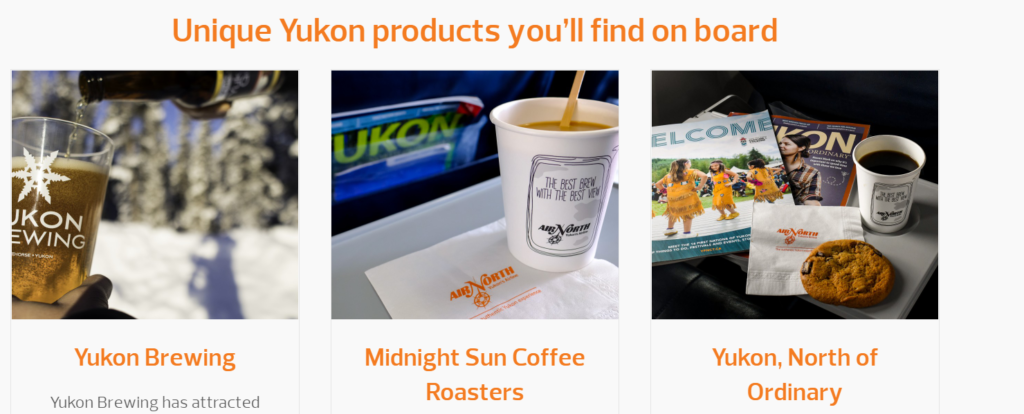
Meanwhile, Air Canada operates a direct flight between Whitehorse and Vancouver. The currently scheduled flight operates on Sundays, Tuesdays, Thursdays, and Saturdays in the evening, making it ideal for connecting flights from all over Canada. During regular times, there is a daily flight between the two cities.
WestJet also operates a flight between Calgary and Whitehorse six days per week, excluding Sundays.
With Aeroplan’s previous fixed-rate mileage rewards, it was very possible to get excellent value out of Aeroplan points by redeeming them for domestic flights to Whitehorse. Now that dynamic pricing with Air Canada is in effect, and since WestJet’s $125 Member Exclusive Fares and its loyalty program are no longer a thing, travel during peak season may wind up costing more than you’d hoped, so it’s best to shop around.
I decided to do a quick scan to compare prices between the different airlines that fly to Whitehorse this summer.
For simplicity, the below flights were researched on the same date from Vancouver to Whitehorse, and aren’t inclusive of Connector Fares with Air North:
- Air Canada: $273 or 8,800 Aeroplan points in economy class; $523 or 15,100 Aeroplan points in business class
- Air North: $214 in economy class
- WestJet: $294 in economy class; $496 in premium economy
With the above in mind, my decision would be to either fly into Vancouver on Aeroplan points and then with Air North on a Connector Fare both ways, and/or to fly one direction on an Aeroplan booking and the other direction on a paid fare with Air North.
What to Do in Yukon
While I haven’t been to the Yukon myself yet, I have been spending lots of time researching the territory ahead of a trip up north in the near future.
Perhaps one of the most important considerations is the time of year during in which you’d like to travel and the type of travel that’s most amenable to you.
As the border of the Yukon runs along the 60th parallel, even the southernmost part of the territory lies farther north than most Canadians will ever venture.
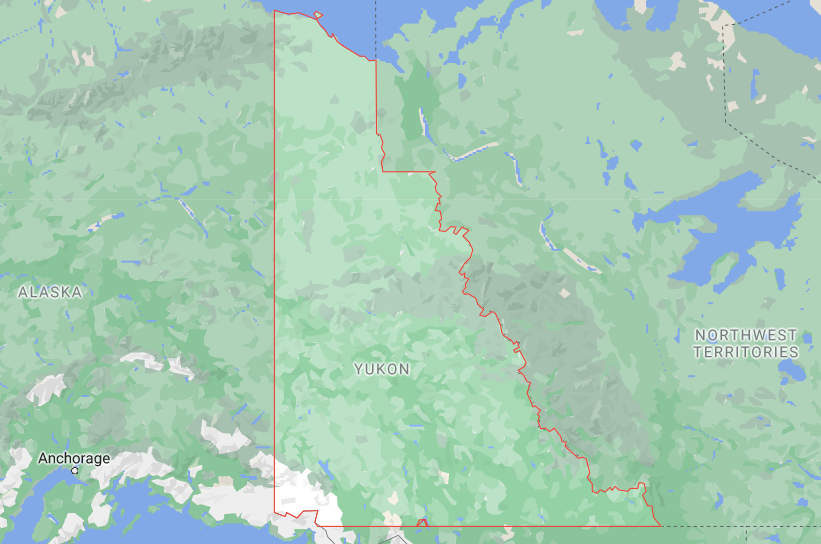
This lends itself to unique opportunities during different seasons. In the summer, you can expect to encounter endless daylight. Conversely, visiting in the winter would bring you darkness for most of the day. Either way, I’d consider it to be an opportunity to learn about how life changes between the seasons.
If you are into outdoor activities, the Yukon is teeming with possibilities. Kayaking, canoeing, hiking, camping, horseback riding, dogsledding, fishing, cycle touring, snowshoeing, snowmobiling, and white-water rafting are all easily within reach and are likely to be unforgettable experiences.
Travel Yukon’s website is a fantastic resource for trip inspiration and What’s Up Yukon has some great resources for events happening around the Yukon.
Whitehorse
Yukon’s capital, Whitehorse, has a population of around 25,000 people and is by far the largest city in the Yukon. It is also the largest of the three territorial capitals.
While its population pales in comparison to most capitals in Canada, Whitehorse boasts a number of museums, restaurants, coffee shops, and other amenities that will be harder to find in the rest of the territory. So, plan to soak in the comforts of the big city and stock up with last minute gear before heading out to explore the rest of the territory.
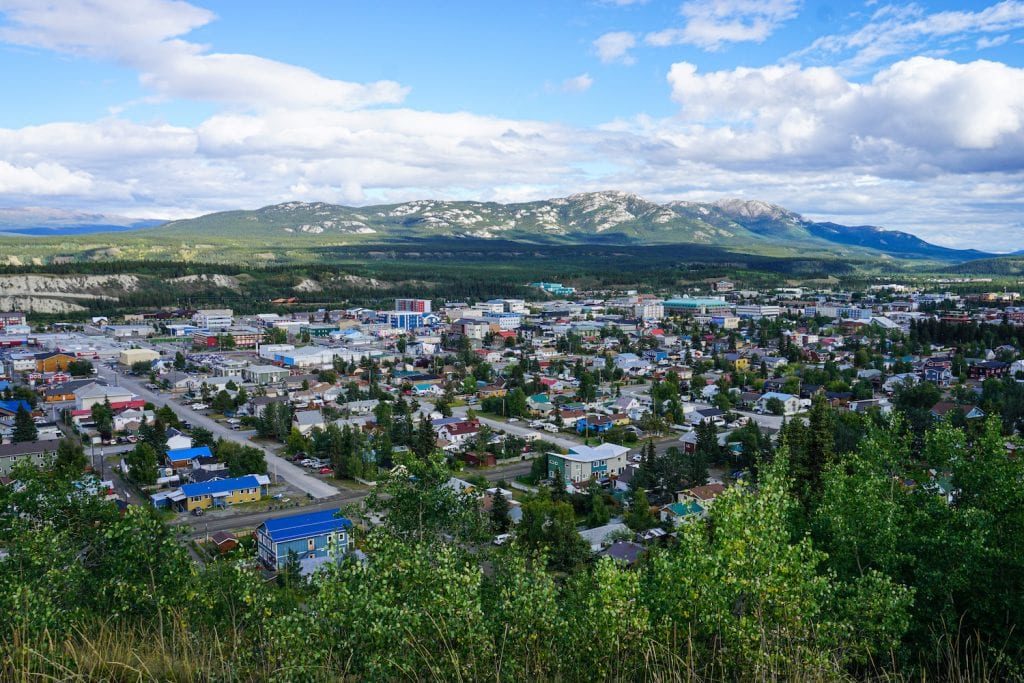
With over 700km of marked trails along the Yukon River and around Whitehorse’s environs, it also sounds like a great place to exercise and explore as you get your bearings. One of my favourite ways to get to know a city is to go for a long run, and it sounds like Whitehorse would be a perfect place to do this.
Northern Lights
All throughout the Yukon, the aurora borealis or northern lights (do Yukoners just call them “the lights?”) glow with spectacular displays of light in the night sky. They are most active in the first few weeks of winter, although they can still be seen between mid-August and mid-April, usually between the hours of 10pm and 3am.
While asking locals during your visit is probably your best bet for aurora borealis spotting, the Aurora Forecast website gives predictions a few days in advance.
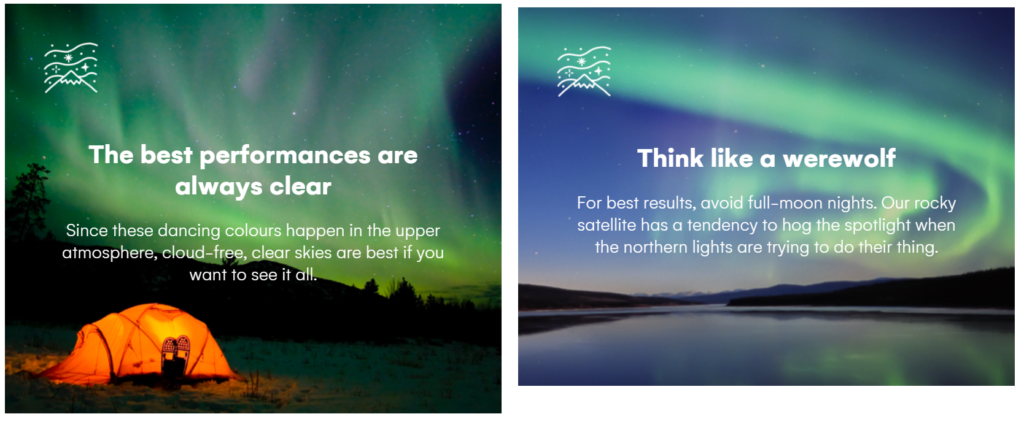
I can picture myself being very content to sit on a balcony at a remote lodge with a warm beverage gazing up into the sky for hours on end at one of the most iconic images of Northern Canada.
The only way I think that this could be topped is by lazing in a hot spring at night, which used to be possible at the Takhini Hot Pools. Unfortunately, the site was closed permanently last fall, but a new site is under construction and will hopefully reopen soon.
Dawson City
Once the capital of the Yukon and the main hub during the gold rush, Dawson City sounds more fascinating the more I read about it.
Many of the buildings have been preserved to align with their appearance in the 1800s during the height of the Klondike Gold Rush, giving the town a look unlike any place I’ve been to before. One of the hotels in town was formerly a brothel, which would make for a very interesting stay (especially if the walls could talk).
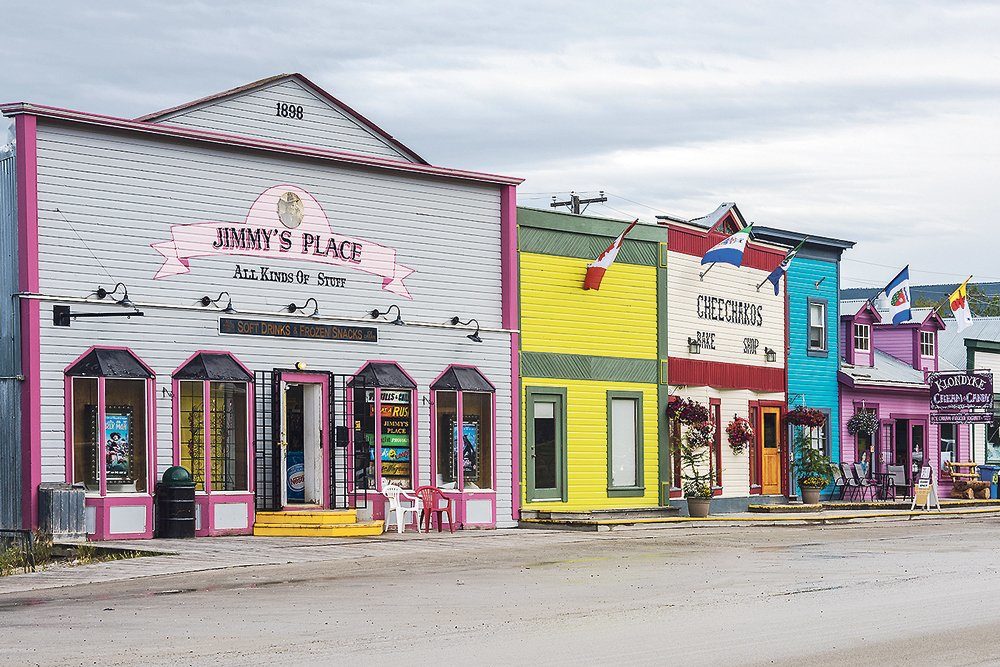
A former co-worker of mine who grew up in Dawson City suggested that the Sour Toe Cocktail at the Sourdough Saloon is something worth trying. To become an official member of the club, you have to purchase a shot, recite the “Sourtoe Oath,” and then consume your shot with an actual, preserved human toe placed in your glass.
To make it better, your lips must touch the toe in order to join the club, and you get a certificate for your efforts.

I’ve also heard many good things about the Dawson City Music Festival, which usually happens in mid-July. It has been cancelled in 2021, but could very well be an excellent consideration for planning a trip for Summer 2022.
Dempster Highway
The Dempster Highway is a 740km unpaved highway that begins in Dawson City and ends up in Inuvik in the Northwest Territories. It is the only year-round all-season road available to the public that crosses into the Arctic Circle, which runs close to the 66th parallel.
The highway traverses through pristine, untouched wilderness with an abundance of wildlife and natural beauty.

Interestingly, if you find yourself above the Arctic Circle for the summer solstice, you can marvel at the sun circling around the sky without setting.
This itinerary would also require the Northwest Territories to be open to non-essential travel. At the time of writing, this is not the case, so it may be best to plan for this one next year.
Golden Circle
The Golden Circle is a roughly four-day driving route south from Whitehorse through to Skagway and Haines, Alaska, before veering back across the border to Haines Junction, Yukon. The route takes you across mountains with beautiful azure lakes, through gold rush towns, on ferries, and over alpine passes.
This itinerary would be dependent on the land border between Canada and the United States being open for non-essential travel. While this currently is not the case, there is speculation that this may change closer to the end of July.
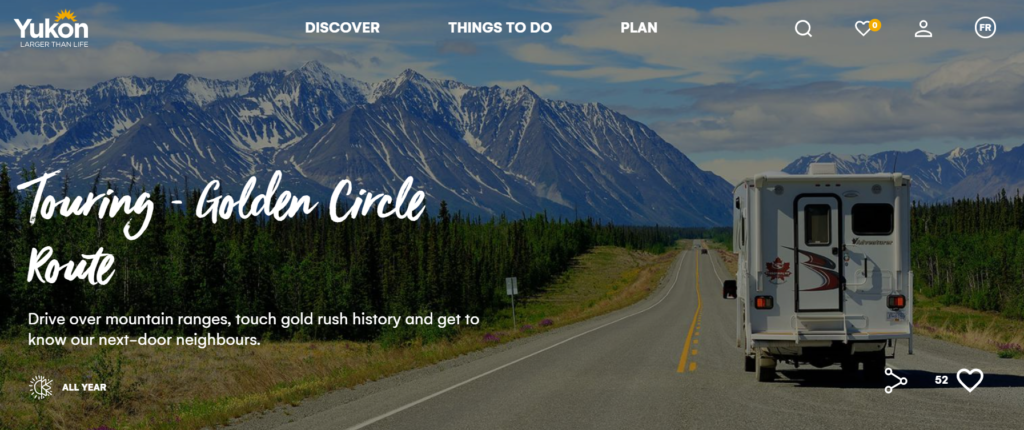
Ddhäl Ch’èl Cha Nän / Tombstone Territorial Park
Spanning 2,200 square kilometres, Ddhäl Ch’èl Cha Nän (in the local Hän lanaguage) or Tombstone Territorial Park is a unique span of untouched wilderness. Located 1.5 hours from Dawson City or seven hours from Whitehorse, it is a spectacular destination for hiking, car camping, backcountry camping, wildlife viewing, and winter recreation.
The scenery in this area looks outstanding. Without cell coverage, it is also a place where getting away from it all is very possible. The only notifications you’d get are from animals roaming the park or from other hikers wishing you a quick hello.

Aurora 360
This might be one of the most interesting flights you’ve ever been on. Aurora 360 is a chartered flight that takes off around midnight and traverses the Yukon and the Northwest Territories in search of the aurora borealis (northern lights). It operated in 2017, 2019, and 2020, and I hope that it will plan to operate again once restrictions are lifted.
This experience gives you the opportunity to see the aurora from above the clouds, as well as a number of on-ground activities, flights, meals, accommodation, and other inclusions. In-flight, they serve glowing green cocktails and choose a flight path that scientists determine to have the best light-show on the outside.
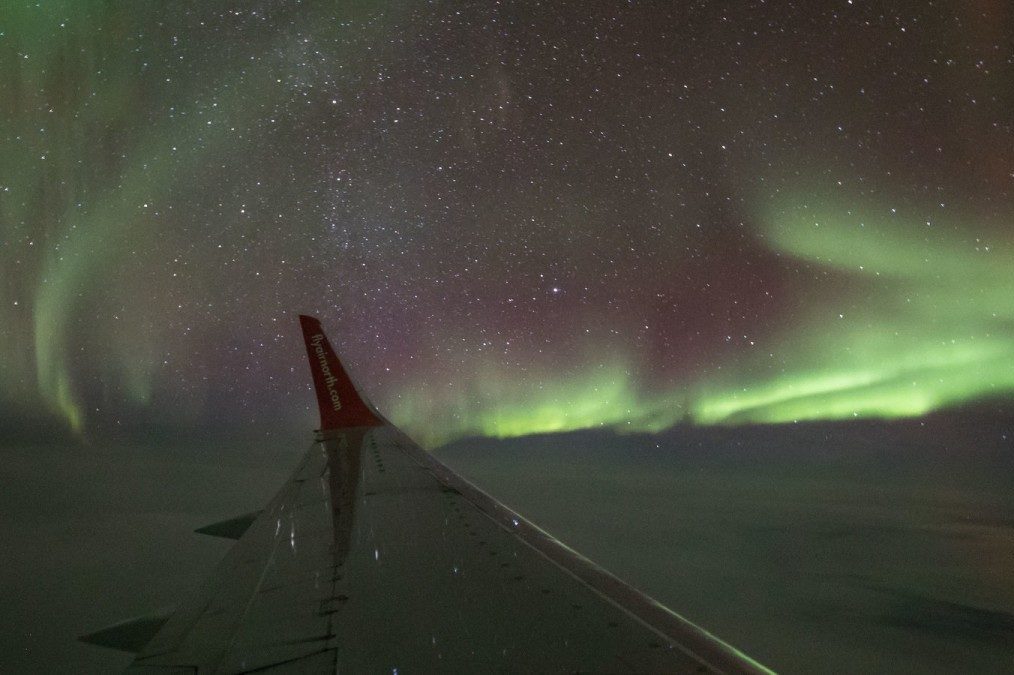
Booking this will cost you around $4,000 per person. But for aviation geeks and those in search of a once-in-a-lifetime experience, the cost could very well be justified.
Conclusion
The Yukon has long been on the top of my list of places to visit in Canada. Now that it has reopened for fully vaccinated Canadians, I’d love to start exploring the territory and learning more about it.
As it’s so far away from most major Canadian cities, planning a trip there by road or by air is also part of the fun. Indeed, Air North’s Connector Fares combined with an Aeroplan redemption is a great way to save cash and to try the Yukon airline’s unique offerings.
There are so many opportunities to get outside and also to explore the unique indoor attractions that the Yukon has to offer. As someone who appreciates a good mix of urban comforts and outdoor pursuits on a holiday, the Yukon sounds like a perfect new place to explore as restrictions lift.
As I’m planning my upcoming trip, I would love to hear about your experiences in the Yukon and anything that you think should be a “must-see” or “must-do”.
Feel free to comment below, get in touch on the Prince of Travel Elites Facebook group, or connect with others in the community in the Prince of Travel Club Lounge on Discord.










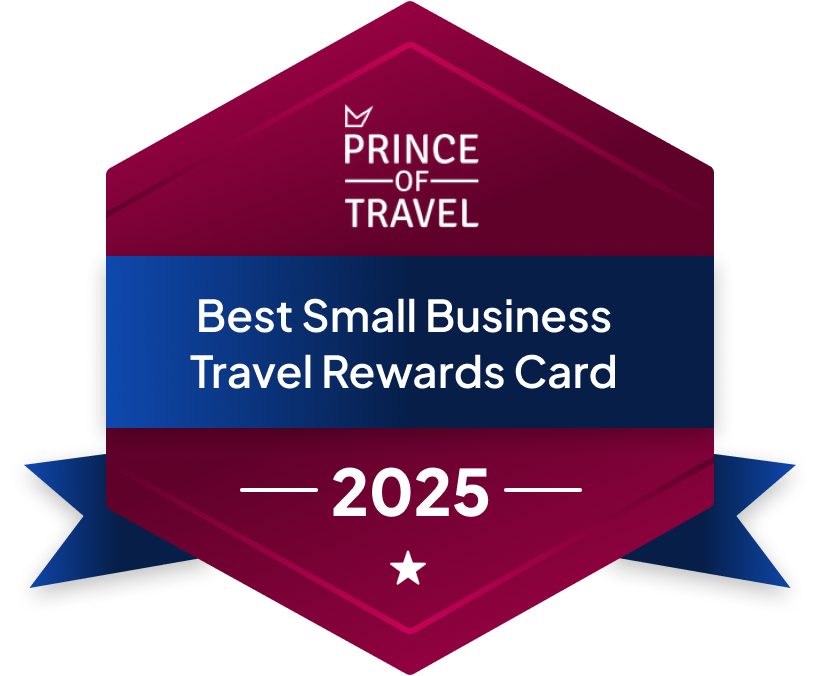


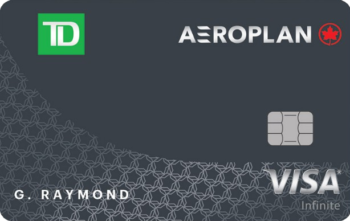






Hey TJ. Great article and good research. I have spent a few months up in the Yukon and done a handful of the things you mentioned. The golden circle is lots of fun and one of the most beautiful drives of my life. Carcross is a short drive from Whitehorse and also maintains that Klondike feel. Don’t forget Kluane national park, home to Canada’s highest peak. Saw some epic northern lights there, only a few nights out of a total of 16 weeks I spent up there. So I consider myself pretty lucky 🙂
Wow! That sounds like an incredible experience! Thanks for the input and the solid travel DPs:)
My sister lives in Whitehorse. She only flies Air North as they don’t change/cancel flights like AC or WJ. She’d rather fly to Ottawa and drive to Toronto than ever take AC/WJ. Buyer beware on Connector flights.
*ever take. She’s been stranded a couple times in Vancouver from AC connecting flights.
I had plans to visit YK pre-covid and was going to fly Porter YTZ to YOW, to catch a YOW-YXY. Have to use my covid credit by Jun/22 and will be doing something similar, catching direct AN flight from YYC during a trip to Calgary.
Thanks for the DP. The schedule changes are really annoying and run a risk with the Connector fares, for sure. I like that the connecting flights can be within 3 days of the flight to/from Yukon, though. Plus, you’d get to squeeze in a few days in another city 🙂
hmm – what are your throughts on Air North? Have you ever flown the Yukon’s airlines?
Not yet – but I think with their Connector Fares and cookies on board, it’s worth a try 🙂
Do you have any more info on Air North’s open-jaw-style flying and driving packages? I’ve googled and looked through their website but can’t find anything about them.
Keep an eye out on the website in the near future – there’s nothing there yet but there should be soon. I’ll do my best to notify you when it’s there. It should be under ‘Packages’.
Went there last September for 4 days when it was, very briefly, open to unvaccinated British Columbians. ABSOLUTELY STUNNING!!!!
There were almost no other tourists there making it even more special, so if you have the opportunity I would recommend visiting soon before it eventually opens back up to the world.
That sounds spectacular. I can’t wait to get up there and experience it for myself!
Same! Took the opportunity as well last September. Great use of the 50% Miles Back promo.